The Road to Experiential Learning
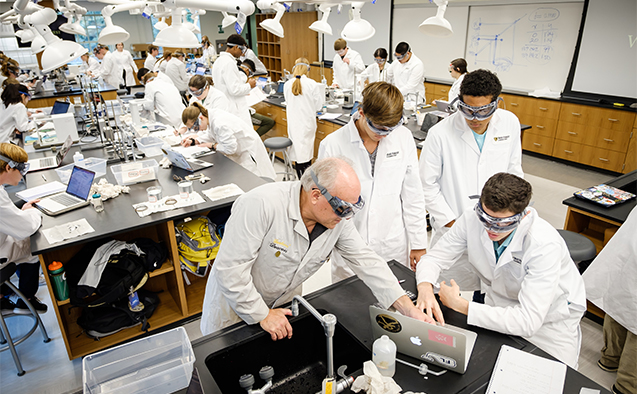
This series describes the concept of Experiential Learning and highlights how it has been implemented as well as examples from several programs at Wake Forest University.
Have you ever wondered about how you can “up your teaching game” to include authentic educational experiences? We can look among our colleagues and peers at Wake Forest University for examples of learner engagement.
What is Experiential Learning?
Experiential learning is a teaching and learning approach that focuses on hands-on, real-world experiences rather than traditional classroom instruction. The goal of experiential learning is to help students develop practical skills and knowledge by engaging in activities, projects, and problems that require them to apply what they have learned.
Wake Forest University is on a journey toward fully embracing experiential learning, an educational paradigm that shifts away from traditional classroom instruction in favor of hands-on, real-world experiences. This approach aspires to equip students with practical skills and knowledge by immersing them in activities, projects, and problems that necessitate the application of theoretical learning in practical contexts.
At the heart of experiential learning are several key features that define its approach: direct engagement with materials and tools for hands-on learning, the application of classroom knowledge to real-world problems, active student participation in experimentation and problem-solving, and the crucial role of reflection and feedback in the learning process.
At the heart of experiential learning are several key features that define its approach: direct engagement with materials and tools for hands-on learning, the application of classroom knowledge to real-world problems, active student participation in experimentation and problem-solving, and the crucial role of reflection and feedback in the learning process. Collaboration and teamwork are emphasized, reflecting the collaborative nature of professional environments, while the flexibility of the approach allows for adaptation to meet diverse learning needs and contexts. Research suggests that this method can lead to improved long-term retention of knowledge and skills.
Key Features
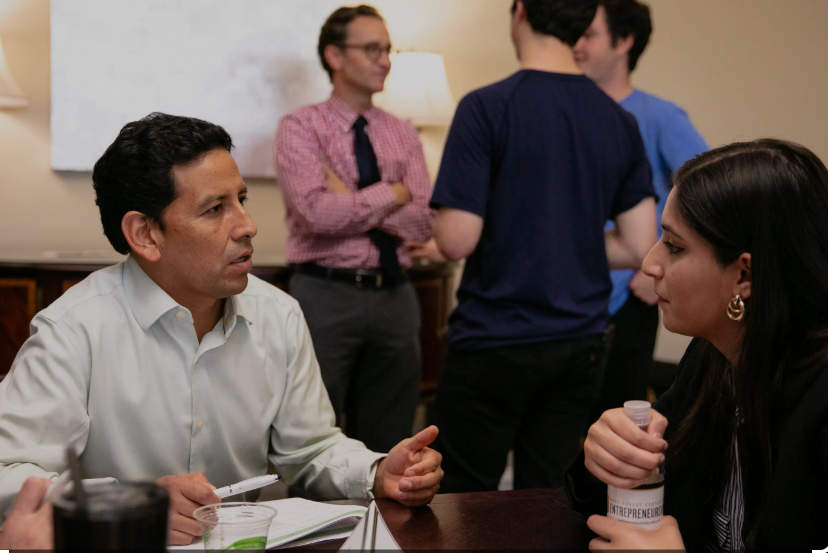
Wake Forest University aspires to integrate various forms of experiential learning into its curriculum. These include service learning projects that address social issues, entrepreneurship programs for budding business leaders, STEM activities that build problem-solving skills, and outdoor education programs that connect students with the environment. Other formats like internships, project-based learning, and simulation exercises also play a part in offering students a taste of the real world.
Here are some key features of experiential learning:
- Hands-on learning: Experiential learning involves direct experience and manipulation of objects, materials, and tools. Students are encouraged to experiment, explore, and discover through hands-on activities.
- Real-world applications: Experiential learning is focused on real-world problems and applications. Students learn by applying what they have learned in the classroom to real-life situations.
- Active participation: Students are actively involved in the learning process through participation, experimentation, and problem-solving. They are encouraged to take risks, make mistakes, and learn from their experiences.
- Reflection and feedback: Experiential learning involves reflection and feedback on the learning process. Students reflect on their experiences, identify what they have learned, and receive feedback from peers and teachers.
- Collaboration and teamwork: Experiential learning often involves collaboration and teamwork. Students work together to solve problems, complete projects, and share ideas.
- Flexibility and adaptability: Experiential learning is flexible and adaptable to different learners and situations. The approach can be tailored to meet the needs of individual students and the context in which they are learning.
- Long-term retention: Studies have shown that experiential learning leads to long-term retention of knowledge and skills. Students are more likely to remember and apply what they have learned through hands-on experiences than through traditional classroom instruction.
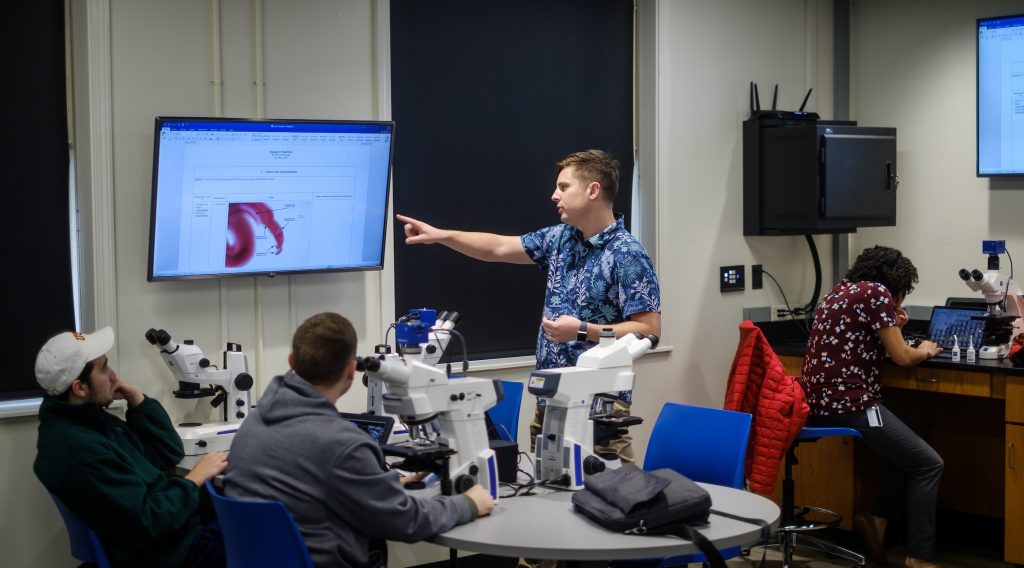
Examples
Examples of Experiential Learning:
- Service learning projects: Students learn about a social issue or problem and design and implement a service project to address it.
- Entrepreneurship programs: Students learn about entrepreneurship by developing and launching their own businesses, products, or services.
- STEM (science, technology, engineering, and math) activities: Students engage in hands-on experiments, projects, and challenges to develop problem-solving skills and understand scientific concepts.
- Outdoor education: Students learn about the natural world through outdoor activities such as hiking, camping, and environmental conservation.
- Internships and work experience: Students gain practical work experience by participating in internships, cooperative education programs, or volunteer opportunities.
- Project-based learning: Students learn about a topic or subject by working on a long-term project that requires them to apply what they have learned.
- Simulation and role-playing exercises: Students learn by participating in simulated scenarios or role-playing exercises that mimic real-world situations.
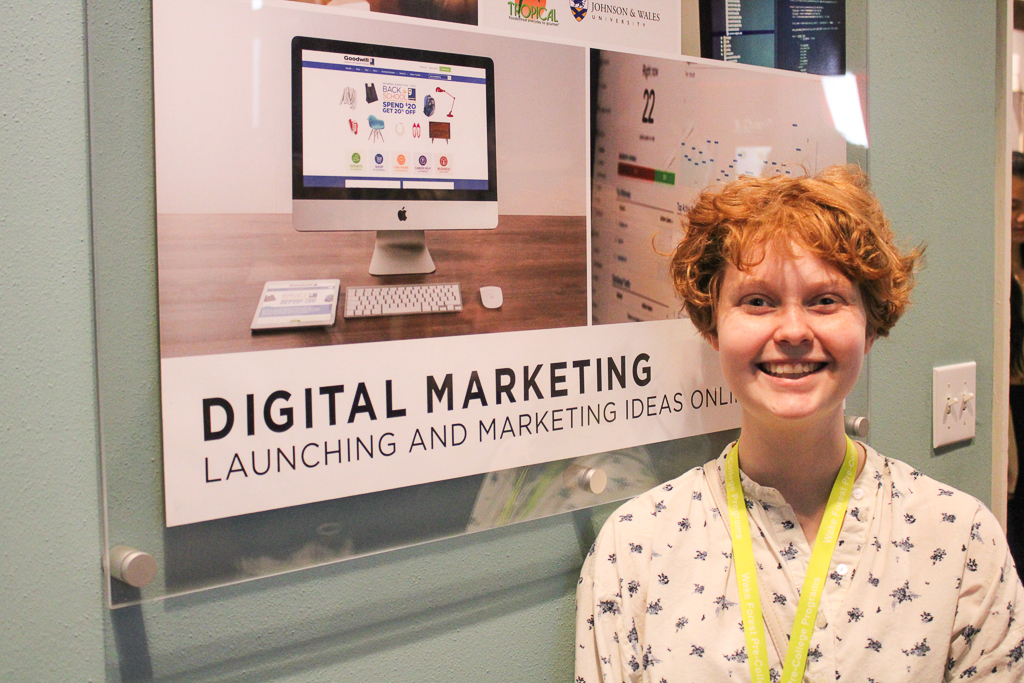
Benefits
The envisioned benefits of this educational strategy are significant. They range from heightened student engagement and motivation, to better knowledge retention and the ability to apply learned concepts in new situations. Furthermore, experiential learning aims to enhance critical thinking and problem-solving abilities, improve teamwork and collaboration skills, boost confidence, and provide a more comprehensive understanding of subjects by applying them in various contexts, thus better preparing students for future challenges.
Benefits of Experiential Learning:
- Increased engagement and motivation: Hands-on experiences can increase student engagement and motivation, leading to better learning outcomes.
- Improved retention and transfer: Experiential learning leads to long-term retention of knowledge and skills, and students are more likely to apply what they have learned in new situations.
- Developed problem-solving and critical-thinking skills: Experiential learning encourages students to think critically and solve problems through hands-on experiences.
- Enhanced collaboration and teamwork skills: Students learn to work together and collaborate effectively to achieve common goals.
- Increased confidence and self-efficacy: Hands-on experiences can increase student confidence and self-efficacy, leading to improved learning outcomes.
- Broader understanding of subject matter: Experiential learning can help students develop a broader understanding of a subject or topic by applying what they have learned in different contexts.
- Preparation for future challenges: Experiential learning prepares students for future challenges and opportunities by developing practical skills and knowledge that can be applied in a variety of situations.
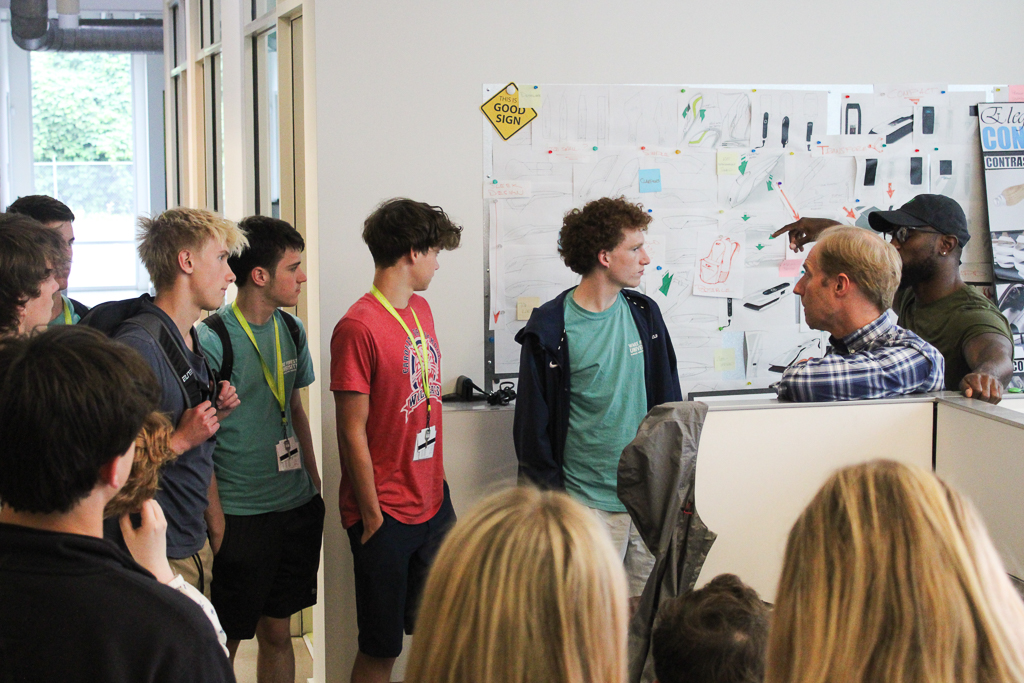
Challenges and Limitations
Implementing experiential learning at scale comes with its challenges. These include potential limitations in resources, safety concerns, time constraints, and difficulties in measuring outcomes. Experiential learning approaches may have an inherent lack of structure and the challenge of scaling it for larger classes can also pose obstacles, alongside the risk of unequal access to these valuable learning experiences.
Challenges and Limitations of Experiential Learning:
- Limited resources: Hands-on experiences may require specialized equipment, materials, or facilities, which can be expensive and difficult to obtain.
- Safety concerns: Some experiential learning activities may involve safety risks, such as working with chemicals or tools.
- Time constraints: Experiential learning activities may take longer than traditional classroom instruction, which can be challenging for teachers and students alike.
- Difficulty in measuring learning outcomes: It can be difficult to measure the effectiveness of experiential learning activities, as they often involve complex and intangible learning outcomes.
- Lack of structure: Hands-on experiences may lack structure or clear objectives, which can make it challenging for teachers to guide students effectively.
- Difficulty in scaling up: Experiential learning activities may be difficult to scale up for larger classes or populations, as they often require personalized attention and customization.
- Potential for uneven distribution of resources: Some students may have more access to experiential learning opportunities than others, which can lead to an uneven distribution of resources and learning outcomes.
In striving toward its goal, Wake Forest University acknowledges these challenges and views experiential learning not just as an educational strategy, but as an aspirational commitment to fostering a more engaged, adaptable, and skilled student body. This journey reflects an understanding of the evolving educational landscape and the need to prepare students for the complexities of the modern world.
Citations
Cooke, Ed. “Experiential Learning (having fun is a key to learning).” TEDxVeniceBeach, October 2017, URL: https://www.youtube.com/watch?v=tI2WLCschuc
Alexander, Adrienne. “Experiential Learning: The Education Revolution We Need to Have.” TEDxBrisbane, 2022, URL: https://www.youtube.com/watch?v=Rb_uji4Ge5s
Moon, Jennifer A. (2004). A Handbook of Reflective and Experiential Learning: Theory and Practice. London: Routledge.
Henz, Martin. “Is Experiential Learning Scalable?” TEDxNUS, April 2019, URL: https://www.ted.com/talks/martin_henz_is_experiential_learning_scalable
Roberts, T. Grady, Graduate Teacher Assistant, University Of Florida 2003, “An Interpretation Of Dewey’s Experiential Learning Theory“
Gray, Kiera. “Experiential Learning: What is it and how it can be used.” The State of Education Podcast. Podcast audio. June 13, 2023. URL: https://www.audible.com/pd/Experiential-Learning-What-is-it-and-How-Can-it-Be-Used-Podcast/B0C7WDFPJY
Categories: Tech Tip
